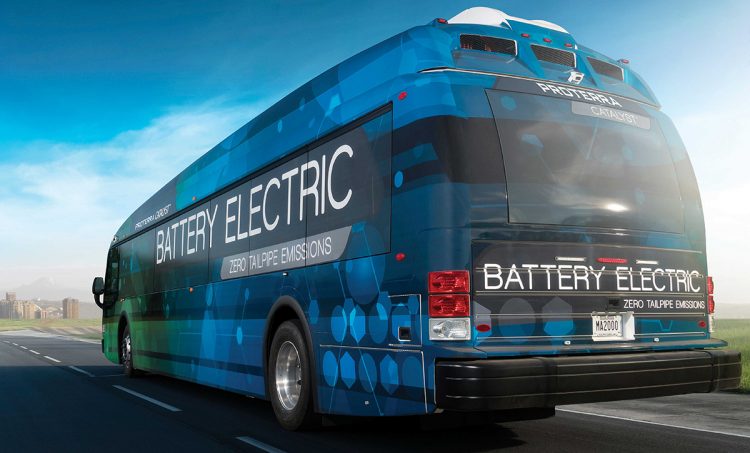U.S. Department of Transportation Announces $85 Million in Grants for Projects Nationwide to Expand Advanced Bus Technologies

WASHINGTON – The U.S. Department of Transportation’s (USDOT) Federal Transit Administration (FTA) today announced $84.9 million in grant selections through the Low- or No-Emission (Low-No) Grant program, which funds the deployment of transit buses and infrastructure that use advanced propulsion technologies. Thirty-eight projects in 38 states will each receive funding through the program.
“These grants will help communities nationwide bring the next generation of bus technology to enhance their transportation systems,” said Secretary Elaine L. Chao.
Eligible projects include the purchase or lease of buses powered by modern, efficient technologies. These include hydrogen fuel cells, battery electric engines, and related infrastructure investments such as charging stations.
“Since its establishment, FTA’s Low-No program has funded over $300 million in new buses, infrastructure, and training, helping create and maintain American jobs in a fast-growing industry,” said FTA Acting Administrator K. Jane Williams.
Some examples of selected 2019 Low-No projects include:
- The Vermont Agency of Transportation (VTrans) will receive $3 million to purchase all-electric buses and charging equipment and upgrade its bus facility to support electric charging for Advance Transit. The agency, which serves six communities in Vermont and New Hampshire near White River Junction, including the region’s largest employer, Dartmouth College, provides close to 900,000 trips per year.
- The Prince George’s County, Maryland Department of Transportation will receive $2.2 million to purchase battery electric buses and charging stations to determine the effectiveness of incorporating electric vehicles into its 95-vehicle fleet. The buses will debut on routes serving the University of Maryland, the popular National Harbor, and communities within Opportunity Zones.
- The Metropolitan Atlanta Rapid Transit Authority (MARTA) will receive $2.6 million to purchase battery electric buses and chargers that will replace diesel buses on two of its 108 routes. The new buses will be supported with a combination of on-route overhead charging and plug-in depot chargers.


